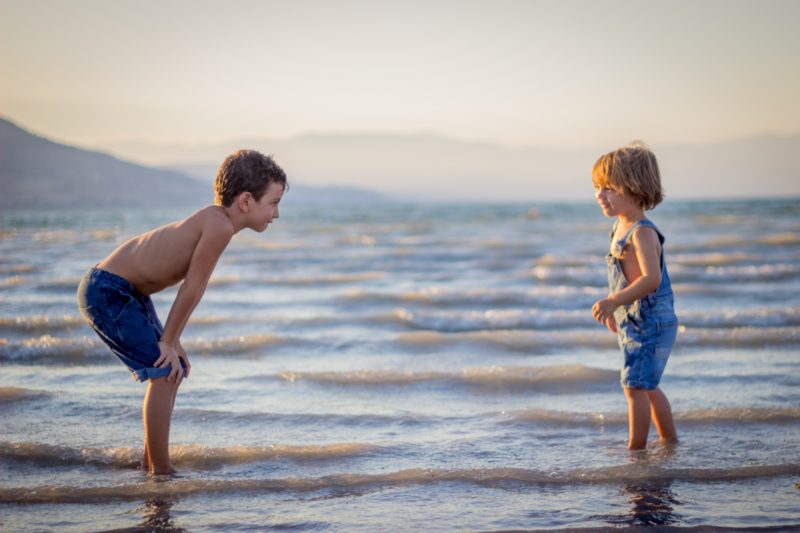- An adult forcing a child to do sexually things with them against the child’s will
- Natural sexual intercourse between an adult and a child who is under the age of 16
- When an adult has unnatural sexual intercourse with a child who is under the age of 16
Massachusetts DCF Child Sexual AbuseWhat is the Official Definition of “Child Sexual Abuse” in Massachusetts?
- MA DCF’s official definition of “sexual abuse” is “Any non-accidental act by a caregiver upon a child that constitutes a sexual offense under the laws of the Commonwealth or any sexual contact between a caregiver and a child for whom the caregiver is responsible.”
- Also includes making a child a victim of sexual exploitation or sex trafficking.
Who are “Sexually Exploited Children”?
- Child prostitution
- Human sex trafficking
- Sexual servitude
What are the Physical Signs of Child Sexual Abuse?
- Difficulty walking and sitting
- Painful urination
- Swelling or itching in the genital area
- Genital or anus injuries (such as bruises, bleeding, lacerations, scar tissue)
- Throat injuries (including bruises, bleeding, lacerations, scar tissue)
- Torn, stained, or bloody undergarments
- STDs
- Pregnancy
- Wetting the bed
- Sexually seductive behavior
- Sexualized play
- Age-inappropriate sexual knowledge
- Frequent discussions on sexual topics
- Sudden and excessive masturbation
- Uncontrollable public masturbation
- Sudden emergence of promiscuity
- Sudden appearance of nightmares
- Going back to old habits (such as sucking their thumb)
- Sudden beginnings of phobias
- Afraid of being home alone
- Abnormal clinging behavior
- Weight changes
- Anxiety

What are the Hidden Signs of Child Sexual Abuse?
- When the child seems more interested in interacting with one sex over the other (typically the sex of the abuser)
- It looks like the child dislikes or is afraid of a specific person
- Expensive gifts
- The child is eager to please a specific person
- Sexualized behaviors (such as grabbing other people’s breasts)
- Abnormal bathroom or shower habits
- Stress or anxiety when left alone with a specific person
How Does Sexual Abuse Affect Children?
- Depression
- Anxiety
- Eating disorders
- Sexual dysfunction
- Substance abuse
- Panic attacks
- Hesitation towards intimacy
- Shame
- Worthlessness
- Guilt
- Difficulty forming trusting relationships
- Personality disorders
- Difficulty focusing in school
- Falling grades
Who Sexually Abuses Children?
- Studies show that sexual abusers are usually males who have their victim’s trust. Also, step-parents are more likely to be child sexual abusers than biological parents.
- Abusers invest time with the child and family, aiming to earn trust.
- They may normalize sexual behaviors, convincing the child that their actions are acceptable.
- Some abusers expose the child to pornography to desensitize them.
- Abusers maintain close physical proximity, giving gifts to create a sense of specialness.
- Grooming aims to pressure the child into silence about the abuse.
- Abusers promise emotional rewards or safety for keeping the abuse secret.
- Abusers use threats, like harming loved ones or taking away privileges, to ensure silence.
- Children are manipulated into believing disclosure will lead to negative consequences.
- Abusers might claim that disclosure will break up the family, instilling fear in the child.
What are Sexually Suspicious Behaviors in Adults?
- Lack of concern about the sexual abuse allegations
- Dismissing the child’s reaction to the alleged sexual abuse
- Domestic violence
- Abusing drugs and/or alcohol
- Controlling behaviors

What is the Punishment for the Rape of a Child?
DISCLAIMER
You find yourself in this situation, it’s advisable to seek legal representation from a qualified attorney, like those at the Law Office of Kevin Seaver, who can advocate for your rights and guide you through the complex process of a DCF investigation.
Remember that the ultimate goal of DCF is to ensure the safety and well-being of children while supporting families in crisis.
Please note that this article does not create an Attorney-Client relationship between our law firm and the reader and is provided for informational purposes only. Information in this article does not apply to all readers.
Readers should not rely on this information as legal advice and should seek specific counsel from the attorney based on personal circumstances.
Thank you. Kevin Patrick Seaver is a Massachusetts DCF Defense Lawyer who represents parents against false child abuse allegations.

Massachusetts DCF Defense Lawyer Kevin Seaver has been successfully fighting false child abuse allegations since 1991.


